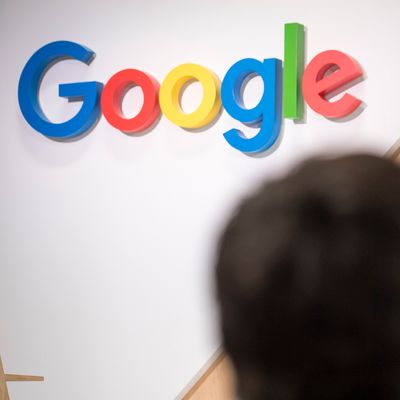
Back in 2011, I was trying to land a job as a web editor for an alt weekly and wanted to prove I had some tricks up my sleeve. So in addition to a résumé and cover letter, I bought an ad on Google that would appear with searches of my name, linking to a simple landing page with my résumé and clips. (It was a very dumb trick.) I learned two important things. One, if you’re not smart about setting a max daily budget in Google Ads, you can blow through $100 in a day. Two, old-school alt weekly editors don’t Google candidates — I got the job, and later learned that nobody involved in hiring me had seen the ad at all.
But even while I was making poor choices in 2011, there was no question about where I’d place my ad. That year, Google controlled about 80 percent of the search engine market in the U.S. If I were to try the same trick today, it would make even less sense to not use Google; it now controls about 91 percent of the search-engine market, with Yahoo and Bing fighting it out for single percentage points at the margins.
For local businesses, having ads tied to Google search results can be a boon, but it’s not a necessity; the search engine’s “organic” results often do the trick, due to Google Maps or smaller aggregator sites like Yelp. But when it comes to “branded” advertising — especially for direct-to-consumer brands that forgo retail space and depend entirely on online portals to move product — buying ads on your own name is a table stake.
Bloomberg looked into this phenomena, finding that pressure to buy for brands is especially intense on mobile, where search ads are placed directly underneath search results, and competitors often buy ads against each other. Bloomberg found that Uber was advertising against Lyft as of Friday, March 8.
I’ve stumbled across this naturally. While shopping for mattresses recently, I kept getting served ads on Google from Tuft & Needle, which had bought ads against its competitors, reading “‘Do Not Buy That Mattress’ | Learn the Truth Why Overpay,” complete with custom landing pages showing you how much you were going to overspend if you went with Leesa or Casper or Purple or Nectar or anything besides Tuft & Needle. This means that Tuft & Needle competitors are essentially locked in to buying a Google ad, because if they don’t, they cede the top results to Tuft & Needle’s pages explaining why their competitors’ mattresses are overpriced hunks of junk.
“You have to buy the ads every day,” said Mike Lindell, CEO of MyPillow Inc., speaking to Bloomberg. “Google gets a piece of every single MyPillow sold and it’s wrong. Why should someone be able to bid on your own brand words and why do you have to buy your own just so people can see you online? That’s wrong.” When MyPillow experimented with simply not advertising on Google, they found that others swooped in, directing people searching directly for their brand’s name to knock-off stores and other brands. “We’ve had to bid more to get back on there after we stopped,” said Lindell.
Decades ago, when the Yellow Pages were still the primary way people discovered local businesses, companies would use very simple hacks, such as trying to make themselves the first listing in the phone book — thus the prevalence of “AAA Plumbers” and “A1 Auto Repair” shops in most metro areas. Business could also take out small ads in the Yellow Pages themselves, advertising their services or wares. What a business couldn’t do, for example was buy an ad and ensure that it was placed directly next to the listing for their competitor’s business, announcing to all car owners that Jake Swearingen’s Auto Shop would offer you a better deal than A1 Auto Repair.
But Google has fundamentally changed a lot of how we find information. The Yellow Pages were cumbersome and infrequently updated way to find a plumber or pizza place compared to what we have to today. Google’s has not only made the world much more efficient for me as a regular customer, but its targeted advertising has allowed for businesses to find customers in a much more cost-effective way, and at a scale that has made the Yellow Pages seem quaint. But Google’s free-for-all ad market and its complete dominance of the search engine market, combined with its ever-increasing ad prices — up by 5 percent last year, per ad agency Merkle — places many smaller businesses in a lose-lose situation. They can either pay more and more each year to buy ads for searches on their own brand name, or stop and see a competitor’s ad show up when people search for their brand (though their own homepage would still likely rank above any ad from a competitor organically).
It may be a lose-lose for businesses, but it’s a win-win for Google, and one of the big reasons Google’s stock has been so attractive to investors. But political figures on both the left and right, most prominently Elizabeth Warren, have started to make noise about breaking up larger tech monopolies. The businesses hurt most by tech monoliths — smaller businesses without built-in brand recognition, fighting an uphill battle on nearly every front from entrenched incumbents — are also the type that would be most sympathetic if called to testify in front of Congress. Google’s dominance in both search and advertising has been a technological and business wonder for the past 20 years, and made it one of the richest companies in the world, but if the mood in Washington or among consumers starts to sour, that dominance may start to work against it.





























